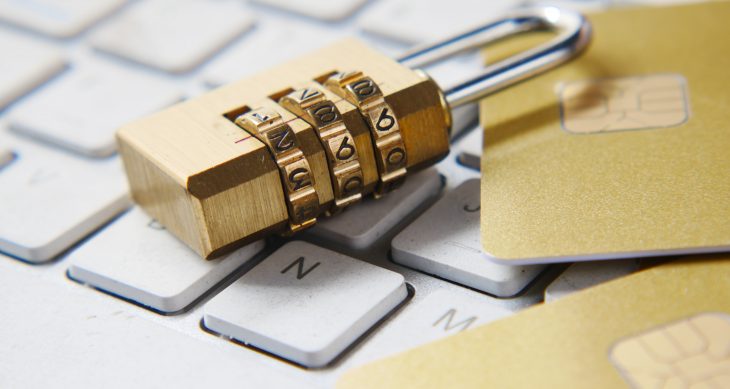
7 Tips for Leaving Cryptocurrency to your next-of-kin in your will
Even though cryptocurrency is fairly new, it’s taken the world by storm. Finder reports that about 23% of adults now own digital currency, and more people are adding it to their financial plans. Given the growing value of cryptocurrency, it’s important to think about how to properly plan for it in your estate planning. Recent news stories like the death of Bitcoin billionaire Mircea Popescu remind us how important it is to ensure our loved ones can access our digital currency after we die. This blog will give you 7 tips to help you understand how to will your cryptocurrency to your loved ones.
Tip 1: Make sure your cryptocurrency is listed in your will
The last thing you want is for your digital currency to be invisible or inaccessible to your next-of-kin. Remember that digital currency isn’t located in a traditional bank, so if your loved ones/ executors don’t know about your bitcoin, and how to access it, it will be lost when you pass away. That said, since your will becomes public record, you *don’t* want to include identifying digital wallet details directly in your will, but rather in a separate memorandum that can remain private. Unless you only own a very small amount of cryptocurrency, the value is probably sufficient that you should consider it as part of your estate, and take care to transfer it to your next of kin.
Photo by Executium on Unsplash
Tip 2: Leave instructions about how to sell/transfer digital currency
Cryptocurrency is not currently accepted by many banks or investment institutions. There are some possible solutions to help ensure that your heirs are able to receive their inheritance. One solution is to leave instructions with relatives or close friends about how they can sell and transfer these currencies if there’s no existing account. Keep in mind your next-of-kin will need both your digital wallet information as well as your secret key. Most people opt to keep their digital wallet credentials and secret key separate, and even keep their secret key completely offline to prevent hacking. If you do this, keep in mind your executor *must* know where it is and it must be legible for them to be able to access it. A digital vault can keep track of all of these details and you can include notes about where to find the secret key, if you maintain it offline.
Tip 3: Help your heirs set up a digital wallet in advance
Your loved ones can receive digital currency as part of your estate, but keep in mind that cryptocurrency isn’t handled the same way as traditional currency. You may want to educate your next-of-kin about cryptocurrency first and then set up an account with Coinbase or Gemini where they can store it until they are ready to convert the cryptocurrency into another form of currency. You should also tell them how much is being left and what kind of currency it is.
Photo by Executium on Unsplash
Tip 4: Consult with an expert
It’s always best to consult with an estate planner or tax lawyer before including any digital assets in your will. You may find that it is better and more practical to put all of those assets into joint ownership, rather than transferring them outright. That way, they can be accessed by either or both beneficiaries during their lifetimes, though keep in mind that can impact the tax burden. It’s important to consult with an attorney or tax professional who understands cryptocurrency ownership and inheritance, since taxes do apply to cryptocurrency.
Tip 5: Relieve the cryptocurrency tax burden
Even though your cryptocurrency may have (hopefully has) increased in value since you bought it, when you bequeath it to your heirs, the value is “stepped-up” to the current market value, so they only have to pay taxes on any increase in value from when they receive it– meaning that the increase in value from when you bought it is now effectively tax-free.
Tip 6: Keep good cryptocurrency records!
It will help your executor and your heirs to make sure you track: when did you purchase your cryptocurrency, how much did you pay for it, and if you gift or transfer it, list the fair market value on date of transfer. Also, at the risk of being redundant, remember that your executor will need both your digital wallet information and secret key in order to access your cryptocurrency, so make sure they know where to find the information. A digital vault is a good place to store your digital wallet information and the purchase records, and you can leave instructions about where to find your secret key. If you store your secret key on a digital device of any kind, make sure your executor has the password to access that device.
Photo by Executium on Unsplash
Tip 7: Consider leaving it as a charitable gift
The IRS rules currently state that donating cryptocurrency to a charity won’t trigger a capital gain or loss. As long as you’ve held that bitcoin for at least one year, when you donate it to the charity, you can take a tax deduction for the fair market value of the digital currency at the date of donation. So your favorite charity can receive the donation at its appreciated fair market value, you’re able to take the dedication, without having to pay capital gains– everyone wins!
Easeenet is the easiest way to organize and preserve your digital estate, including your digital wallet credentials and purchase records. You can also easily store notes about where to find your cryptocurrency secret key and any related information. Learn more and start your free trial today!









One thought on “7 Tips for Leaving Cryptocurrency to your next-of-kin in your will”
Comments are closed.